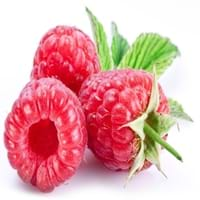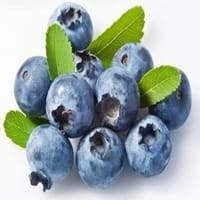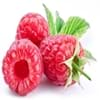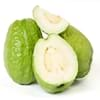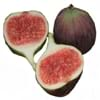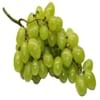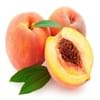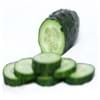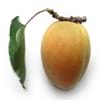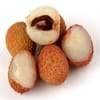Health Benefits
Cancer prevention, Heart care, Prevents macular degeneration, Reduces blood circulation problems
Cancer prevention, Cures gastro-intestinal troubles, Improves night vision, Improves stomach health, Prevents diabetes, Prevents high blood pressure, Reduces blood circulation problems
General Benefits
Anti-inflammatory properties, Controls blood sugar levels, Digestive aid, Eye care, Helps in weight loss
Fights against infections, Helps in weight loss, Prevents blood clotting in vessels, Treatment of urinary tract infections
Skin Benefits
Anti-aging benefits, Brightens and lightens complexion
Anti-aging benefits, Nourishes skin, Protects against skin damage
Hair Benefits
Acts as moisturizer, Regulates hair growth, Shiny hair
Prevents hair loss
Allergy Symptoms
Breathing difficulty, Eczema, Hives, Itching, Nasal congestion, Runny nose, Sneezing, Watery eyes, Wheezing
Not Available
Side Effects
Allergic reaction
Decrease in blood sugar levels, Diarrhoea, Dizziness, Headache, Internal bleeding, Stomach pain
Best Time to Eat
Best if taken as a breakfast (or empty stomach), As a snack in the late afternoon, Don't eat after meal, Morning time (before lunch)
As a snack in the late afternoon, Don't consume at night and before bed, Eat the fresh ones, avoid mixing with any other foods, don't eat after meal., Morning time (before lunch)
Vitamin B5 (Pantothenic Acid)
Vitamin C (Ascorbic Acid)
Vitamin K (Phyllochinone)
Calories in Fresh Fruit with Peel
Calories in Fresh Fruit without Peel
Not Available
Not Available
Calories in Frozen Form
Not Available
Calories in Dried Form
Not Available
Calories in Canned Form
Not Available
Varieties
Amity, August Red, Boyne, Canby, Caroline, Comet, Dinkum, Dorman Red, Latham, Meeker, Black Hawk, Hayda, Lauren, Meeker and Latham
Dwarf bilberry, Piper, bog blueberry, Northern bilberry, Mountain bilberry and Oval-leaved bilberry
Color
Black, Purple, Red, Yellow
Dark purple
Inside Color
Pink
Light Green
Origin
Europe, North Asia
Unknown
Soil Type
Sandy loam
Moist, Well-aerated
Climatic Conditions
Cold
Cold
Facts about
- There are more than 200 varieties of raspberries.
- In USA, 90% of the raspberries are grown in Washington, California and Oregon.
- They do not ripe after they are picked.
- A raspberry contain 100 to 120 seeds.
- Bilberries are used in manufacturing of alcoholic drinks.
- They are used to improve aromas of sorbets.
- The green extract of it's leaves is used in textile industry as natural dye.
Top Producer
Russia
Japan
Other Countries
Azerbaijan, Canada, Mexico, Poland, Serbia, Spain, Ukraine, United Kingdom, United States of America
Denmark, Finland, Iceland, Sweden
Top Importer
United States of America
United States of America
Top Exporter
Poland
Chile
Botanical Name
Rubus Idaeus
Vaccinium myrtillus
Synonym
Not Available
blaeberry, whinberry, European blueberry, whortleberry
Subkingdom
Tracheobionta
Tracheobionta
Division
Magnoliophyta
Magnoliophyta
Class
Magnoliopsida
Magnoliopsida
Subclass
Rosidae
Dillenhidae
Family
Rosaceae
Ericaceae
Species
R. idaeus
Vaccinium myrtillus
Compare Raspberry and Bilberry
It is important compare Raspberry and Bilberry as both the fruits have a different nutritional value. Their comparison can be done on the basis of their vitamin and mineral content, calories, benefits as well as characteristics, making it easier for us to choose the best fruit for our diet. Their general health benefits are as follows:
Raspberry Benefits: anti-inflammatory properties, controls blood sugar levels, digestive aid, eye care and helps in weight loss.
Bilberry Benefits: fights against infections, helps in weight loss, prevents blood clotting in vessels and treatment of urinary tract infections.
Fruits are also used as a remedy for various hair problems. The hair benefits of Raspberry are: acts as moisturizer, regulates hair growth and shiny hair and hair benefits of Bilberry are: prevents hair loss. Some fruits are known to cause allergic reactions. The allergy symptoms of first fruit are: breathing difficulty, eczema, hives, itching, nasal congestion, runny nose, sneezing, watery eyes and wheezing and the symptoms of second fruit are: not available. Get sorted Raspberry vs Bilberry comparison with the help of fruit comparison tool by fruitvs.com.
